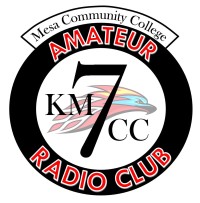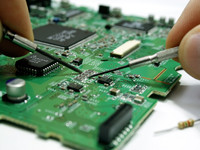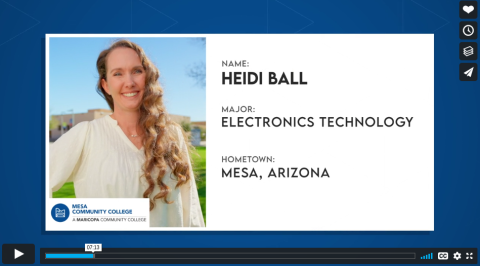Watch the Video
Our electronic program prepares students for careers wherever electronic systems are found. Students and graduates work in industries such as:
- Aerospace,
- Biotechnology,
- Broadcasting,
- Communications,
- Industrial,
- Medical,
- Power,
- Semiconductor, and
- Transportation.
All of these industries employ increasingly complex electronic systems in all areas of our economy. Typical ET jobs include developing, building, calibrating, testing, certifying, maintaining, and qualifying
- instrument landing, radar, and air traffic control systems in airports,
- complex biomedical equipment in biotechnology companies,
- transmitters and communications equipment for TV and Radio broadcasters,
- instrumentation and switching substations for power companies
- medical ultrasound systems, pacemakers, and automatic defibrillators in medical equipment companies
- traffic signal instrumentation and controls for large metropolitan areas,
- high-speed automated systems for the U.S. Postal Service,
- complex instruments and control systems for Semiconductor equipment vendors and manufacturers, and,
- night vision equipment for defense companies.
FAA Certification
The Electronics Technology AAS degree at MCC is certified by the Federal Aviation Administration since 2012. It is the only such certified AAS Electronics program in Arizona, and one of only 35 such programs in the country.
The Electronics program at MCC offers you two degree paths:
Our Electronics Technology (ET) is a two-year Associates Degree program with a purely occupational focus. We have included the maximum amount of hands-on, real-world, practical electronics technology that is optimized to provide you with the most valuable and in-demand industry sills possible.
Our Electronics Engineering Technology (EET) is also a two-year Associates Degree. We designed this degree to provide you with valuable industry skills, but replaced some of the more advanced hands-on electronics courses with more theoretical courses that will be need in most four-year Electrical Engineering programs. If you are considering eventually transferring to a university to pursue a BS in Electrical or Electronic Engineering, the EET is the choice for you.
We also offer a one-year Certificate of Completion in Electronics Technology. This is comprised of the first year of our ET Associates Degree, and is designed to provide you with the opportunity to earn an electronics credential as quickly as possible.
There is much overlap between these degrees. Take a look at a side-by-side comparison on our Degrees page (menu is on the left).
Complete information on Degrees, Certificates of Completion and the course sequences (Pathway) necessary to complete these programs is available here.





